One result of the State-school-enterprise cooperation is the opening of the Semiconductor Incubation and Development Center (VSIC) and the Overseas Semiconductor Design Center of ALCHIP and FPT at the end of March.
Mr. Tran Dang Hoa, Chairman of FPT IS, and Chairman of FPT Semiconductor, FPT Corporation said: “The cooperation between the National Innovation Center and FPT Corporation and a number of technology partners opened VSIC to focus on training, improving skills, nurturing talents, developing businesses, technology and human resources, creating an environment for experts, engineers, lecturers, and students to research and access advanced technology…”.
Vietnam currently has nearly 160 schools specializing in engineering technology, enrolling about 134,000 students each year. The semiconductor industry in Vietnam is expected to need about 10,000 engineers each year, but the current workforce only meets less than 20% of the demand.
The shortage of human resources in the semiconductor industry is a challenge. According to training institutions, to study semiconductors well, students must be good at natural sciences as well as English and soft skills.
The Posts and Telecommunications Institute of Technology trains about 5,000 students each year in digital technology-related fields. In August 2023, the Institute opened a training major called “Microchip Design”, a narrow major in the Electrical and Electronic Engineering group, so the first course of the school only enrolled more than 100 students.
Professor, Dr. Tu Minh Phuong, Chairman of the Academy Council said: “In the coming time, the Academy plans to expand training in semiconductor microcircuits, with a priority orientation to select talented students”. The Academy of Posts and Telecommunications Technology, Hanoi University of Science and Technology, Hanoi National University, Ho Chi Minh City National University and Danang University have signed a cooperation agreement with the alliance of Vietnamese universities for the goal of developing high-quality human resources in the semiconductor industry.
The reality of production requires a focus on the design, packaging and testing of semiconductor chips. However, the training of human resources in the semiconductor industry has not kept up with the pace of development. The number of engineers with expertise in testing and packaging of microchips is still limited. Although the facilities at training institutions have improved, the cost of investing in infrastructure and hardware for training is still a major "barrier" to accessing education.
This is a difficulty that causes many universities to lack laboratories and copyrighted microchip design tools for students to research and practice. Experts say that to quickly increase the quantity and quality of human resources in the semiconductor industry, the first thing to do is to increase the capacity of training facilities.
The semiconductor industry is considered the core of the electronics industry, responsible for creating microchips and electronic components to serve the production of complex products. In order for the semiconductor industry's human resources to have the opportunity to develop, it is necessary to promote linkages, strengthen cooperation as well as diversify domestic and international cooperation models.
The National Innovation Center and its business partners are providing technical support on microchip design to about 40 universities in Vietnam. As part of a plan to cooperate with universities to develop high-quality human resources in the fields of artificial intelligence (AI) and semiconductor technology, Viettel has awarded scholarships to outstanding students at universities to promote the spirit of research and development of high-tech human resources in Vietnam.
Professor, Doctor of Science Nguyen Dinh Duc, former Chairman of the Council of the University of Technology, said that the university has four laboratories conducting research on the design and manufacture of semiconductor components; advanced mechatronic systems; and micronano materials and components. These laboratories are funded by the State, Hanoi National University, and the support of enterprises, along with the school's counterpart funding. The participation of universities, enterprises, and management agencies is meaningful in building training programs towards international standards.
In addition, the school's training methods, curriculum, and equipment must be linked to the actual needs of businesses as well as development trends. Strengthening domestic and international cooperation is also the basis for diversifying training types.
Strengthening the promotion of cooperation opportunities in training not only contributes to solving the difficulty of human resources but also fulfills the tasks set out in the Program "Developing human resources for the Semiconductor Industry to 2030, with a vision to 2050", which is the goal of training at least 50,000 human resources with university degrees or higher by 2030 to meet all stages of the semiconductor industry.
Source: https://nhandan.vn/hop-tac-dao-tao-nhan-luc-cong-nghiep-ban-dan-post875127.html


![[Photo] General Secretary attends special art program "Spring of Unification"](https://vphoto.vietnam.vn/thumb/1200x675/vietnam/resource/IMAGE/2025/4/29/e90c8902ae5c4958b79e26b20700a980)
![[Photo] Ho Chi Minh City: People are willing to stay up all night to watch the parade](https://vphoto.vietnam.vn/thumb/1200x675/vietnam/resource/IMAGE/2025/4/29/cf71fdfd4d814022ac35377a7f34dfd1)
![[Photo] Ho Chi Minh City residents "stay up all night" waiting for the April 30th celebration](https://vphoto.vietnam.vn/thumb/1200x675/vietnam/resource/IMAGE/2025/4/30/560e44ae9dad47669cbc4415766deccf)

![[Photo] Hanoi is brightly decorated to celebrate the 50th anniversary of National Reunification Day](https://vphoto.vietnam.vn/thumb/1200x675/vietnam/resource/IMAGE/2025/4/29/ad75eff9e4e14ac2af4e6636843a6b53)
![[Photo] Nghe An: Bustling atmosphere celebrating the 50th anniversary of Southern Liberation and National Reunification Day](https://vphoto.vietnam.vn/thumb/1200x675/vietnam/resource/IMAGE/2025/4/29/64f2981da7bb4b0eb1940aa64034e6a7)
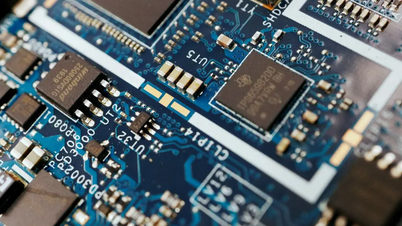



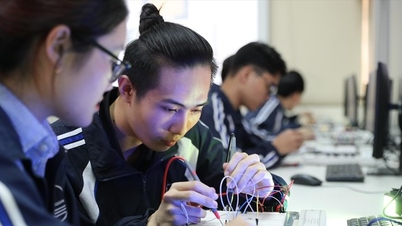





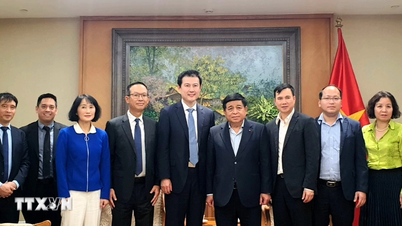



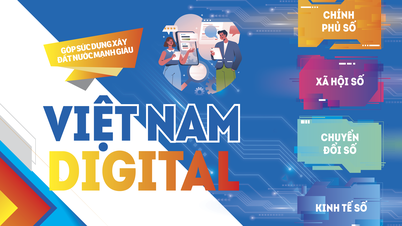







![[Photo] Art performance at the 50th Anniversary of Southern Liberation](https://vphoto.vietnam.vn/thumb/402x226/vietnam/resource/IMAGE/2025/4/30/0141ab4d795b46529ba1f1db886eb53c)

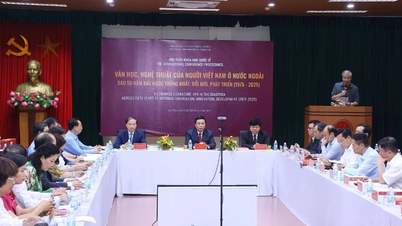
![[Photo] Ho Chi Minh City residents "stay up all night" waiting for the April 30th celebration](https://vphoto.vietnam.vn/thumb/402x226/vietnam/resource/IMAGE/2025/4/30/560e44ae9dad47669cbc4415766deccf)
![[Photo] Ho Chi Minh City: People are willing to stay up all night to watch the parade](https://vphoto.vietnam.vn/thumb/402x226/vietnam/resource/IMAGE/2025/4/29/cf71fdfd4d814022ac35377a7f34dfd1)
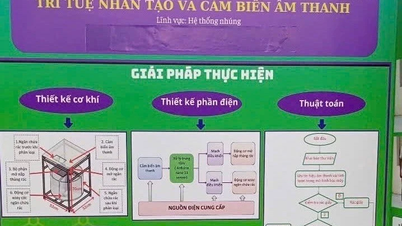
![[Photo] Prime Minister Pham Minh Chinh meets to prepare for negotiations with the United States](https://vphoto.vietnam.vn/thumb/1200x675/vietnam/resource/IMAGE/2025/4/29/76e3106b9a114f37a2905bc41df55f48)










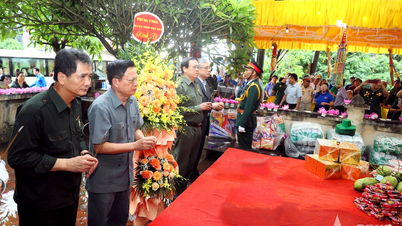

















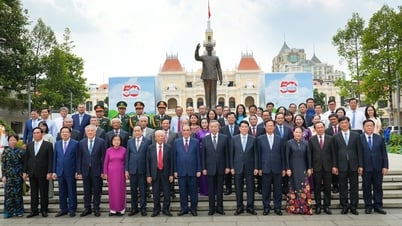






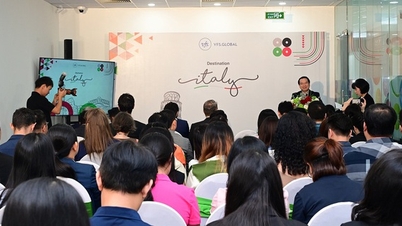

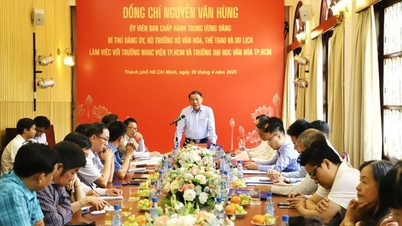
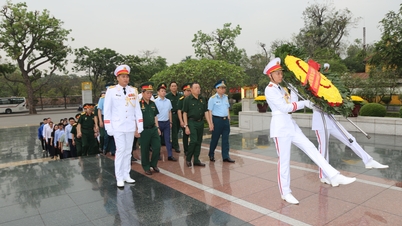
























Comment (0)